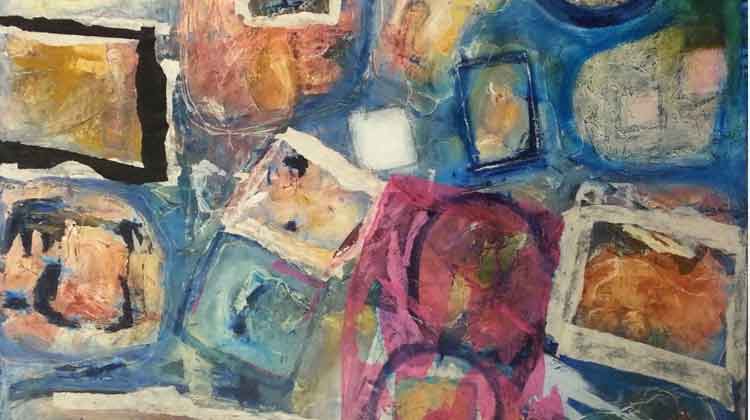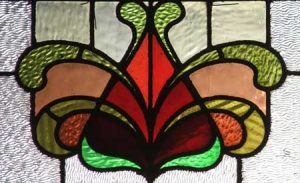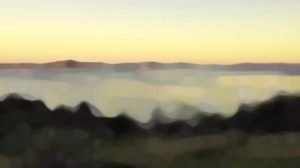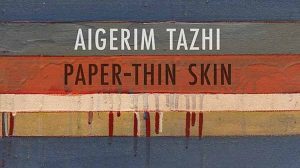
The poems here come from Las Hijas del Espino [Daughters of the Hawthorn], winner of the 2006 Medellín Poetry Prize. Estrada’s poetic subject travels across centuries to highlight in each poem an often overlooked woman, from Eurydice to Sylvia Plath. These lyrical portraits question the virtual absence, underrepresentation, and gendered (mis)understandings of these figures from literary and cultural history. Rather than the delicate, muse-like flower that poets often sing, Estrada links these women through the image of the thorn bush: strong, feared, capable of drawing blood. In bringing together each poem’s barbed ends, this collection forms an impenetrable, resilient entangling, where one woman’s voice is strengthened in her echoing of another’s.
Eurídice
No dudes
continúa el camino
aun si en mi lugar
escuchas
un canto de serpientes
acaso sea
lo más verdadero
lo más parecido
a mi sombra
que te alcanza.
Eurydice
Don’t hesitate
keep to the path
even if in my place
you’ll hear
a song of serpents
it might even be
the truest thing
the thing most like
my shadow
that reaches you.
Circe
Es la sombra
lo que retengo
la belleza de alejarse
cada vez más
el infortunio de haber visto
muchas islas
muchos mares
como a través
de un espejo roto
la muerte que representas
el número de animales muertos
que representas
negro polvo que tus pies
han traído
hasta mi casa.
Circe
It’s shadow
I cling to
the beauty of straying
further and further
the misfortune of having seen
countless islands
countless seas
as if through
a broken mirror
the death you stand for
the number of lifeless animals
you stand for
black dust your feet
have tracked
to my door.
Djuna
Pregunto por el sueño
y en respuesta
lentos animales
de la noche
rodean mi casa.
Djuna
I ask about sleep
in turn
slow-moving creatures
of the night
circle my house.
Louise Ackerman
Dibuja sobre mí un pez
cúbrelo de agua hasta que desaparezca
siempre en mi lugar un fresno
derríbalo con tu hacha
instituye bajo mi lengua
un alfabeto sagrado
que en él se reconozcan los hijos del mar
y del aire
ordénales después el olvido
nunca fui la mano que se abre
y muestra las líneas de su destino
mi alma es el puño cerrado
la aldea desierta
el paraíso tras la caída de todos los ángeles
escribo para merecerlo.
Louise Ackerman
Draw a fish above me
cover it with water until it vanishes
put an ash tree to root in my place
knock it down with your ax
set in motion beneath my tongue
a sacred alphabet
where children of sea and air
are unquestioned
place them right after oblivion
the hand opened to bare
the lines of its fate was never me
my soul is a closed fist
a deserted village
a paradise after the fall of angels
I write to be worth it.
Zelda Sayre
Como no vendrás a la cena de mis muertos,
ni sabrás para quién cavo esta tumba,
pongo desde ya,
bajo tu lengua,
la hostia viva de mis alucinaciones.
Cada quien tomó su camino,
de izquierda a derecha
el más profundo.
Cada quien siguió atado
a la cinta mortal de su locura.
Escribe para que no vuelvan,
que yo comeré y beberé, como Alicia,
el rojo resplandor de la fiesta,
mientras el mundo termina de cerrarse
sobre mí.
No te asombre
si nuestras palabras
no son las de antes,
si nuestro destino, tal como se construye,
nos golpea el rostro y nos hiere
y nos deja completamente ciegos.
¿Qué hacer cuando ellos nos empujan?
Esa legión de ángeles ebrios,
terribles como el rostro
que se refleja por última vez.
No tardes.
Ya nadie nos espera.
Zelda Sayre
Since you can’t make the dinner with my dead,
and won’t know for whom I dig this grave,
from now on I’ll place
beneath your tongue,
the living host of my hallucinations.
We all chose a path,
from left to right
the farthest one.
We all stayed bound
to the deadly strip of our insanity.
Write so they won’t come back,
since, like Alice, I’ll eat and drink up
the party’s red radiance,
while the world finishes closing
over me.
Don’t let it shock you
if our words
aren’t the same as before,
if our fate, as it’s made up,
slaps us across the face, scars
and leaves us completely blind.
What can we do when they push us?
That legion of drunken angels,
unnerving like a face
reflected one last time.
Don’t be late, don’t be late.
There’s no one waiting anymore.
Sylvia Plath
Todo lo ha devorado el invierno
y el jardín de rojos tulipanes en el que ocupé mis manos
ha iniciado su descenso definitivo.
La casa es una viejo sarcófago de vigilas
y pergaminos desechos.
En ella duermen las ruinas de mi corazón.
A través de la bruma
sólo puedo distinguir el rencoroso brillo
de las abejas.
No hay perfección.
Mi cuerpo es un camino cerrado, reflejo de una luz marchita.
Nunca se bastó a sí mismo. Nunca.
Detrás de los muros, por entre las grietas,
vuelve a mí el eco de la fiebre
palabras que revientan bajo la escarcha
como pequeños ríos de mercurio.
El invierno ha perdido mis pasos en la nieve.
Sangra en el aire
su condena.
Sylvia Plath
Winter has devoured it all
and the red tulip garden where I kept my hands busy
began its final descent.
The house is an ancient sarcophagus with vigils
and scraps of parchment.
What’s left of my heart sleeps inside it.
Through the mist
I can only make out the spiteful glow
of bees.
There is no perfection.
My body is a path closed off, a reflection of a faded light.
It was never enough for itself. Not even once.
Behind the walls, through the cracks,
fever’s echo circles back to me
words bursting beneath the frost
like small rivers of mercury.
Winter has lost my footsteps in the snow.
Bleeding into the air
its conviction.





Leave a Reply